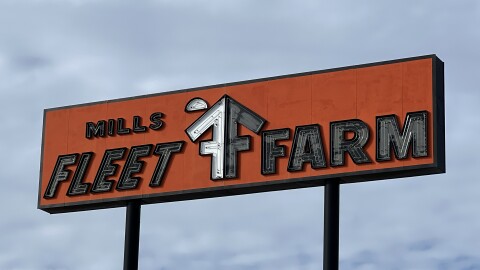WALKER — Leech Lake Band of Ojibwe Reservation completed an updated draft of its Hazard Mitigation Plan and is seeking public feedback.
Like all of Minnesota, Leech Lake is vulnerable to a variety of natural hazards such as tornadoes, windstorms, severe winter storms, flooding, drought and extreme temperatures, which can threaten the loss of life and property in the reservation.
Planning for natural disasters minimizes the impact of events that can cause vast economic loss and personal hardship.
In a news release, Leech Lake Reservation Emergency Management strongly encouraged all reservation residents, as well as other related agency or organizational stakeholder, to review and offer feedback on the interactive website, PDF of the draft plan and proposed local mitigation actions.
The review and comment period is open through Monday, Nov. 3. Feedback may be provided via the online comment forms or directly to Leech Lake Reservation Emergency Management Director Duane Oothoudt at 218-335-8277, extension 6312, or duane.oothoudt@llpolice.org.
The hazard mitigation plan is a stand-alone tribal plan addressing vulnerabilities within the reservation to natural hazards. The plan also incorporates the concerns and needs of other key stakeholders, such as neighboring city and county jurisdictions to the reservation, as well as related agencies, organizations or businesses participating in the planning process.
The update of the plan has been under direction of Leech Lake Reservation Emergency Management in cooperation with U-Spatial at the University of Minnesota Duluth and representatives from tribal departments, neighboring jurisdictions and other participating stakeholders.
Together, the planning team worked to identify cost-effective and sustainable actions to reduce or eliminate the long-term risk to human life or property from natural hazards. Examples include infrastructure projects for areas that experience repetitive flooding; construction of safe rooms in areas where residents and visitors are vulnerable to tornadoes and severe storm events; addressing wildfire risk to homes and forests; burying powerlines that may fail due to heavy snow, ice or wind storms; ensuring timely emergency communication to the public through warning sirens and mass notification systems; and conducting outreach to increase public awareness of severe weather and personal preparedness.
Hazard mitigation planning helps the Leech Lake Reservation protect its residents, the release stated. In addition, increasing public awareness of natural disasters and encouraging personal preparedness helps to create a community that is resilient to disaster, and breaks the cycle of response and recovery.
Updating the plan further allows Leech Lake Reservation and its jurisdictions to be eligible to apply for future Federal Emergency Management Agency Hazard Mitigation Assistance grant program funding for projects that help to reduce or eliminate the impacts of future natural hazard events.
-
Beltrami County Master Gardeners Dan Sherman and Val Kinnane joined the KAXE Morning Show to talk about upcoming events.
-
The free test kits from the Beltrami County Soil and Water Conservation District check for bacteria, nitrates, lead, arsenic and manganese in private wells.
-
Kathy and Les Sanders run Sanders Art Studios and teach family enrichment classes in Bemidji. Both joined “Area Voices” to discuss their teaching projects.
-
The DNR adopted new rules in January 2026, changing the previously closed portion of the bass fishing season to catch-and-release, meaning fishing for the species is open year-round.
-
Plus: Early voting opens Friday for Aitkin, Staples-Motley referendums; year-round bass season now in place; Beltrami County, Red Lake residents eligible for free well water test kits; boys swimming and diving state meet starts Thursday.
-
KAXE's weekly list of concerts near you features Rosetta Peters and JG Everest, La Vent Du Nord, MorningBird, KMRE, DC Univer7e, Gemini Playboy, Ephrem Lamar and more.
-
The state of Minnesota and Fleet Farm filed a settlement in federal court Feb. 24, 2026, in a lawsuit accusing the retailer of enabling straw purchases of firearms.
-
Student-athletes from 10 rural Northern Minnesota schools will compete at the state swimming and diving meet Feb. 26-28, 2026, in Minneapolis.
-
Minnesotans voted for their favorite names out of 30 finalists. The winning names will be assigned to one plow in each of MnDOT's eight districts.
-
During the week of Feb. 24, 2026, we enjoy reports of cardinals singing, snow melting, and plants breaking bud. Staff phenologist John Latimer responds.
















